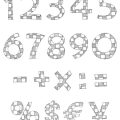Introduction: Crystal Ball Gazing in Contemporary Britain
Once regarded as a relic of bygone eras and shrouded in an aura of mystique, crystal ball gazing is experiencing a curious revival in the United Kingdom. This resurgence may seem peculiar at first glance, especially within the context of a society celebrated for its rational pragmatism and scientific advancements. However, a deeper exploration reveals that the practice has long historical roots embedded in British folklore and tradition, stretching back to mediaeval times when soothsayers and seers were sought after by monarchs and commoners alike. In today’s Britain, this age-old form of divination is being reimagined, not only as a cultural novelty but as an intriguing tool finding unexpected relevance in modern professional life. By examining its evolving place in contemporary British society, we can better understand why crystal ball gazing continues to capture the public imagination and how it has managed to carve out a renewed role amidst the complexities of twenty-first-century decision-making.
2. From Parlour Trick to Professional Tool
The transformation of crystal ball gazing from a quaint Victorian parlour amusement to a tool embraced by certain UK professionals highlights the fascinating adaptability of cultural practices. In the 19th century, séances and fortune-telling sessions were popular forms of entertainment among the British elite, who viewed them with a mix of scepticism and curiosity. The practice was largely confined to drawing rooms and private gatherings, often dismissed as theatrical or superstitious.
Yet, over time, societal attitudes have shifted in tandem with the growing appetite for alternative perspectives in decision-making. Today, some UK professionals—especially in creative industries and entrepreneurial circles—explore unconventional methods to spark innovation or support their intuition. Crystal ball gazing, once relegated to the fringes, now occasionally surfaces in team-building retreats, strategic workshops, and personal coaching sessions.
| Era | Typical Use | Perception |
|---|---|---|
| Victorian (1800s) | Parlour entertainment, fortune-telling | Sceptical amusement |
| Post-War (1950s-1970s) | Novelty at fairs, fringe spiritualism | Cultural curiosity |
| Modern Day (2020s) | Professional workshops, creative brainstorming | Alternative insight resource |
This evolution is not merely about novelty; it reflects a broader re-evaluation of intuition’s role within high-pressure environments. While mainstream British business culture remains rooted in rational analysis and evidence-based decision-making, there is a growing recognition that creativity and foresight often require thinking beyond traditional frameworks. As such, crystal ball gazing has become an unlikely yet intriguing complement—offering space for reflection or symbolic exploration—within the professional toolkit for some forward-thinking UK practitioners.

3. Scepticism Versus Curiosity: British Attitudes Unpacked
In the context of crystal ball gazing’s resurgence, British attitudes are marked by a unique blend of rational scepticism and mild fascination. Historically, the UK has fostered a pragmatic worldview, with the ‘stiff upper lip’ approach often steering individuals towards evidence-based decision-making. This ingrained scepticism surfaces particularly in professional spheres, where mystical practices like crystal ball gazing are frequently met with raised eyebrows or subtle humour. Yet, beneath this veneer of doubt lies a persistent curiosity. Many Britons admit to a quiet intrigue—whether it is reading horoscopes in daily tabloids or catching glimpses of psychic segments on popular talk shows.
The British media landscape plays a significant role in shaping and reflecting public sentiment. Crystal ball gazing and other mystical arts are often depicted through a lens of irony or gentle mockery on television comedies and satirical sketches, reinforcing their fringe status while simultaneously keeping them in mainstream conversation. Newspapers and online publications regularly feature stories of celebrities or business leaders consulting psychics, blending sensationalism with amusement for widespread appeal. This duality allows these practices to remain culturally relevant without necessarily being taken at face value.
Furthermore, the UK’s multicultural society introduces additional layers to this dynamic. While traditional British reserve persists, exposure to global spiritual traditions brings new openness, particularly among younger generations navigating uncertain times. In this evolving climate, crystal ball gazing finds itself oscillating between novelty and nostalgia—a quirky pastime for some and a genuine source of insight for others. Ultimately, the British approach combines critical analysis with an undercurrent of curiosity, ensuring that mystical practices remain both questioned and quietly explored within modern life and professional decision-making.
4. Practical Applications: Decision-Making in UK Workplaces
The resurgence of crystal ball gazing within the context of modern UK professional environments can be observed not only as a novelty but as an experimental tool for decision-making and brainstorming. While traditional scepticism remains, some legal, business, and creative sectors have begun tentatively integrating these unconventional methods to stimulate alternative thinking and foster fresh perspectives. Below, we break down real-world scenarios reflecting this emerging trend.
Legal Sector: Risk Assessment Workshops
UK law firms are renowned for their analytical rigor, yet some teams now incorporate imaginative exercises such as ‘future visioning’—akin to crystal ball gazing—during risk assessment workshops. In these sessions, solicitors project possible outcomes for complex cases by adopting both logical prediction models and guided visualisation techniques. This hybrid approach helps highlight unforeseen risks or opportunities that conventional analysis might overlook.
Scenario Table: Legal Sector Application
| Exercise | Purpose | Outcome |
|---|---|---|
| Guided Visualisation | Explore potential verdicts beyond statistical probability | Broader risk mapping and preparation strategies |
| Imaginary Press Conference | Anticipate public and media response post-case | Crisis communication plans and stakeholder alignment |
Business Sector: Strategic Planning Sessions
In boardrooms across the UK, senior managers sometimes employ metaphorical ‘crystal ball’ sessions during strategic off-sites. These involve scenario planning exercises where participants are encouraged to set aside immediate constraints and envision their company’s trajectory five or ten years ahead. The practice unlocks innovative thinking while also allowing teams to evaluate long-term uncertainties in a structured manner.
Scenario Table: Business Sector Application
| Exercise | Purpose | Outcome |
|---|---|---|
| Scenario Mapping with “What If” Prompts | Challenge status quo assumptions about market trends | Diversified investment strategies and product innovation roadmaps |
| Pretend Future Board Meeting | Aim to reverse-engineer success from an ideal future state | Identification of key milestones and contingency plans |
Creative Industries: Ideation Retreats
The UK’s advertising agencies, publishers, and design studios increasingly experiment with mystical motifs—including crystal ball gazing—as part of ideation retreats. By prompting creative professionals to ‘predict’ the next cultural wave or consumer trend using open-ended visualisation, teams generate bolder campaign ideas and narrative concepts unconstrained by current limitations.
Scenario Table: Creative Sector Application
| Exercise | Purpose | Outcome |
|---|---|---|
| Cultural Trend Gazing Session | Spark ideas for campaigns that anticipate future values or aesthetics | Concepts that feel ahead of the curve; increased client engagement |
| Narrative Foresight Workshop | Create story arcs based on imagined societal shifts in the UK context | Differentiated content portfolios with higher relevance potential |
Cautious Integration and Professional Reflection
The incorporation of crystal ball gazing-inspired methods is carried out cautiously, typically framed as a means of unlocking creativity rather than genuine divination. Professionals often reflect on these exercises post-session to discern actionable insights from fanciful speculation. Ultimately, this revival points to a broader openness within UK workplaces to blend rational analysis with imaginative exploration for more robust decision-making.
5. Ethics, Responsibility, and Regulation
The resurgence of crystal ball gazing in the context of modern UK professional decision-making brings with it a complex interplay of ethical, legal, and regulatory considerations. While such unconventional tools may offer alternative perspectives, professionals must remain vigilant to ensure their use aligns with established standards of conduct.
Legal Frameworks and Professional Standards
In the United Kingdom, regulated professions—such as law, medicine, and finance—are bound by strict codes of practice set out by bodies like the Solicitors Regulation Authority (SRA), General Medical Council (GMC), and Financial Conduct Authority (FCA). These frameworks emphasise evidence-based decision-making and client welfare above all else. Using non-evidence-based practices like crystal ball gazing could risk breaching these standards, particularly if such methods are presented as reliable or definitive guidance.
Transparency and Informed Consent
A cornerstone of UK professional ethics is transparency. If a practitioner incorporates esoteric methods into their advice or services, they must fully disclose this to clients. Informed consent is paramount; clients should understand the nature, limitations, and unproven efficacy of crystal ball gazing before agreeing to any recommendations based on such practices.
Risk of Misrepresentation
The Advertising Standards Authority (ASA) and Trading Standards also play roles in protecting consumers from misleading claims. Professionals who overstate the predictive power of crystal balls risk both reputational damage and legal sanction for misrepresentation or fraud.
Balancing Innovation and Integrity
While the evolving landscape of professional guidance welcomes innovation, integrity must not be compromised. Crystal ball gazing may provide creative insights or spark new ways of thinking, but its role should remain supplementary—never supplanting rigorous analysis or regulatory requirements. Ultimately, UK professionals are responsible for ensuring that any unconventional tool is used ethically, transparently, and in full compliance with relevant laws and codes of conduct.
6. Looking Ahead: The Future of Mysticism in British Professional Culture
As British workplaces continue to evolve, the role of mysticism—including crystal ball gazing—may further integrate into professional culture, driven by shifting attitudes towards wellbeing and decision-making. The traditional boundaries that once separated rational business practices from spiritual or mystical approaches are gradually softening. This trend is fuelled by a growing recognition of holistic wellbeing and the value of diverse perspectives in enhancing creativity, problem-solving, and resilience within the workforce.
Embracing Holistic Wellbeing Initiatives
Organisations across the UK are increasingly investing in employee wellbeing programmes that go beyond conventional health schemes. Mindfulness, meditation, and even tarot reading sessions are making appearances alongside more mainstream offerings. Crystal ball gazing, once relegated to the fringes, may find its place as part of broader mental health and stress management initiatives. These mystical practices offer professionals novel ways to reflect, gain new insights, and manage workplace pressures.
The Shift Towards Inclusive Decision-Making
The modern British workplace is becoming more inclusive of different thought frameworks. As leaders seek innovative solutions in uncertain times, alternative methodologies—such as intuitive or symbolic interpretation—are gaining traction. Crystal ball gazing could evolve from a private curiosity into a team-building tool or brainstorming technique, fostering open-mindedness and collaboration among staff who might otherwise overlook their own intuition or creative instincts.
Potential Challenges and Opportunities
Despite these positive trends, there remains an undercurrent of scepticism within UK professional environments regarding mystical practices. Overcoming this will require careful integration, clear communication of benefits, and respect for personal beliefs. However, if managed well, such practices could help reduce workplace stress and foster a culture where unconventional thinking is valued.
The Next Decade: Integration or Marginalisation?
Looking ahead, the future of mysticism in British professional culture hinges on how organisations balance tradition with innovation. If current shifts towards flexible work arrangements and holistic wellbeing persist, it is likely that mystical approaches will find firmer ground. Whether through formal workshops, informal gatherings, or digital platforms tailored for remote teams, crystal ball gazing may become an accepted—if niche—part of professional life. Ultimately, its success will depend on how effectively it is woven into the fabric of contemporary workplace values: openness, mental health awareness, and creative empowerment.


